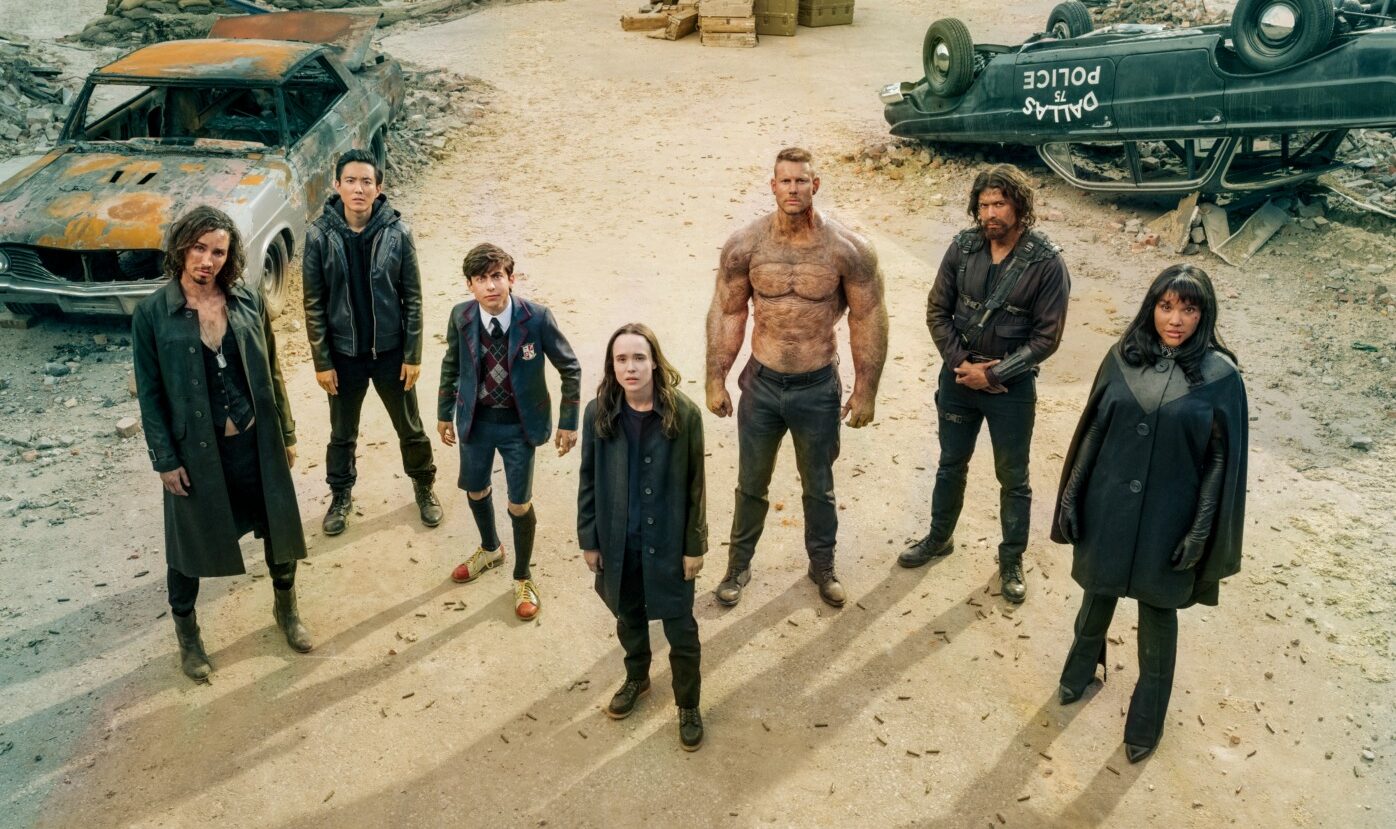‘The Umbrella Academy’ season two review
I heard a rumour… that The Umbrella Academy has finally returned for season two! More than a year after ending the show on an incredible cliffhanger, fans were rewarded for their patience with a follow-up season and promise of a third one. I’ll be the first to admit that I was anxious about whether the new episodes would be able to live up to their predecessors. However, I found myself completely hooked from the beginning and watched it all back-to-back: the second season is just as funny, gripping, and emotional (if not more so) than the previous one.
The Umbrella Academy started life as a comic book series (written by My Chemical Romance frontman Gerard Way) released in 2007 and was then adapted for television by Netflix in 2019. The show follows a dysfunctional family of ex-superheroes, who were born with powers beyond the extraordinary and were raised by an eccentric billionaire to fight crime. Season one saw the siblings reconnecting, long after going their separate ways when their father passed away and trying to prevent the imminent apocalypse over the course of eight days. It won several awards, notably for the show’s visual effects, production design, and comic book to TV adaptation.
The second season is just as funny, gripping, and emotional (if not more so) than the previous one
Unlike the previous season, the second one is set against the backdrop of Dallas, Texas in 1963. It takes on a noticeably different aesthetic and mood: while the first season was funereal, dark, and grey, this season is filled with the bright hues of the swinging sixties. Characters abandon their mourning outfits and are dressed instead in vibrant shades of orange, white, and blue. The Umbrella Academy shifts its focus from the exploration of grief, trauma, and family relationships to social issues (Allison’s involvement in the civil rights movement and Vanya’s secret affair with another woman are notable examples) and strengthening character bonds.
Fan-favourite Robert Sheehan remains one of the stand-out actors in the series, with his portrayal of PTSD-ridden eccentric Klaus Hargreeves. He also does an excellent job portraying the character of the much calmer and controlled Ben Hargreeves possessing the body of Klaus and depicting two characters wrestling over one body. The performances of Justin H. Min, (playing the deceased Ben Hargreeves), and David Castañeda (Diego Hargreeves) are also notable, as both take on more central roles in this season than the previous ones. However, the entire cast does an excellent job at bringing the dysfunctional family, as well as their allies and enemies, to life.
The entire cast does an excellent job at bringing the dysfunctional family, as well as their allies and enemies, to life
Unfortunately, some of the child actors who depict The Umbrella Academy when they were younger are rather flat and unbelievable – Dante Albidone doesn’t do Younger Klaus justice in this season, which took away from what should’ve been an emotional moment. Luckily, flashbacks don’t feature heavily in this season so this drawback can be looked past. Emerging child actor Justin Paul Kelly makes up for this slip with an excellent job portraying an autistic child – as an autistic person myself, depictions can range from cliché to offensive. Although the show relied heavily on some stereotypes, it was well-done and Kelly was incredibly believable in the role.
While the finale was enjoyable, it leant on the idea that the show would be renewed for a third season as it once again ended on a cliffhanger. This is understandable, as it keeps fans interested rather than if everything was tied up, but it could be argued that it’s a somewhat lazy choice.
A lot of areas were definitely improved on since the first season: you thought the show focused too heavily on Vanya? There’s a far more equal split between the characters now. You wanted less of Luther’s and Allison’s skewed relationship? They’ve cut back on it. You were hopeful that you’d get to see the characters display more of their abilities? There’s more superpowers this time! You wondered what it would be like to see Klaus as a hippie cult leader that uses pop culture references from the future to inspire his followers, known as Destiny’s Children? Well, you probably weren’t wondering that specifically, but I’m certainly grateful we got to see it.
You can tell just from watching how much fun they had filming this season of the show, which is far less sombre than the last one
Overall, the second season may have some minor faults but is still an enjoyable watch and fans of the show will likely be satisfied with how things play out. The characters, arguably the main draw of the series, get the chance to develop and grow but are still likeable (except Luther, in my opinion, but it would pretty boring if every character was the same). Once again, the cast do an amazing job and you can tell just from watching how much fun they had filming this season of the show, which is far less sombre than the last one.
Now, if you’ll excuse me, I’ll be getting back to re-watching the show in its entirety.

Comments